Southern Core - Guide
 Happpoen Garden [八芳園]
Happpoen Garden [八芳園]
Minato-ku, Tokyo Pref.MAP
Happoen is a Japanese stroll garden attached to restaurants. This site used to be where the residence of Hitachi group founder Kuhara Fusanosuke was situated. His residential building is also preserved as one of the restaurants.
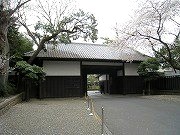
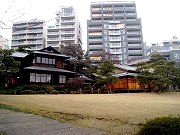
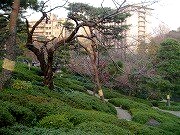
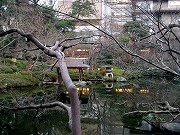
 Tokyo Metropolitan Teien Art Museum [東京都庭園美術館]
Tokyo Metropolitan Teien Art Museum [東京都庭園美術館]
Minato-ku, Tokyo Pref.MAP
10:00-18:00; differs by exhibition; closed Mon*, late Dec-early Jan
Closed Apr 10 - mid-Nov, 2017
The Teien Art Museum used to be the residence of Prince Asaka-no-miya. The museum building was completed in 1933 in Art Deco style.
[details...]6-min walk from Shiroganedai Station of the Toei Mita Line or the Tokyo Metro Nanboku Line
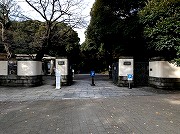
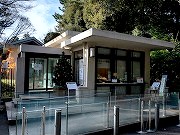
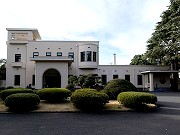
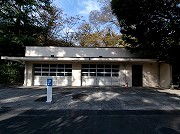
 Hatakeyama Memorial Museum of Fine Art [畠山記念館] link
Hatakeyama Memorial Museum of Fine Art [畠山記念館] link
Minato-ku, Tokyo Pref.MAP
10:00-17:00 (Oct-Mar -16:30); 700yen; closed Mon*, late Dec-early Jan
Under long-term closure
Hatakeyama Museum, which houses a fine collection of Eastern art, also has a tea garden with several tea houses.
[details...]5-min walk from Toei Asakusa Line Takanawadai Station
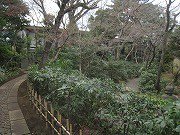
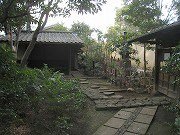
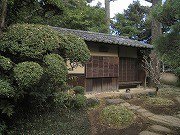
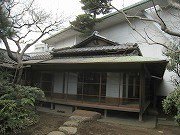
 Sengakuji Temple [泉岳寺] link
Sengakuji Temple [泉岳寺] link
Minato-ku, Tokyo Pref.MAP
Sengakuji is a Soto Zen temple where the graves of 47 Ronin who participated in Ako incident, which would later be fictionalized as Chushingura, are located.
[details...]2-min walk from Toei Asakusa Line Sengakuji Station
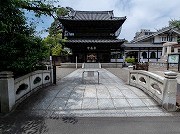
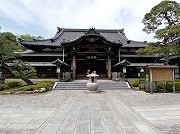
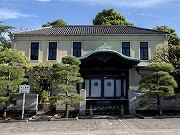
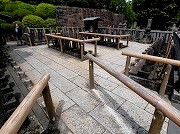
 Tozenji Temple [東禅寺]
Tozenji Temple [東禅寺]
Minato-ku, Tokyo Pref.MAP
Tozenji is a Rinzai Zen temple. There's a three-story pagoda in its precincts.
[details...]7-min walk from JR Yamanote Line Shinagawa Station
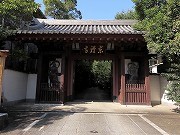
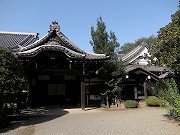
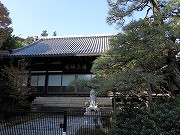
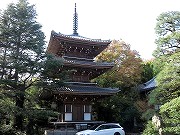
Map
Click a pin on the map or a button below the map to pop open a name balloon. Another click and it will close.
SouthEastern Core - Guide
 Kiyosumi Gardens [清澄庭園]
Kiyosumi Gardens [清澄庭園]
Koto-ku, Tokyo Pref.MAP
9:00-17:00; 150yen; closed Dec 29-Jan 1
It is said that Kiyosumi Gardens, a Japanese stroll garden famous for its use of brand-name rocks, was founded as the residence of a legendary merchant of the Edo era. Later on it became a residence of a domain lord.
[details...]3-min walk from Kiyosumi-Shirakawa Station of the subway lines
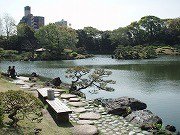
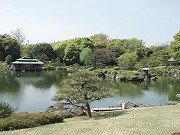
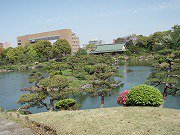
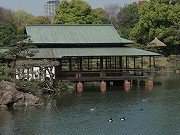
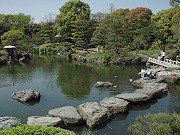
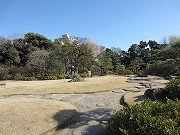
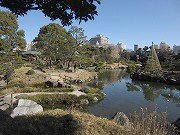
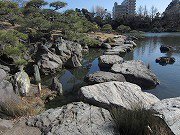
 Fukagawa Edo Museum [深川江戸資料館]
Fukagawa Edo Museum [深川江戸資料館]
Koto-ku, Tokyo Pref.MAP
9:30-17:00; 400yen; closed 2nd & 4th Mon of month & late Dec-early Jan
Part of Fukagawa area in the Edo era, a mainly commoner district of the town of Edo, is reconstructed inside this museum (and yes you can take photos).
[details...]3-min walk from Kiyosumi-Shirakawa Station of the subway lines
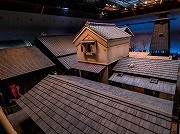
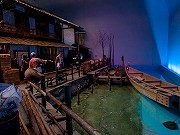
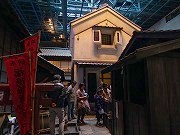
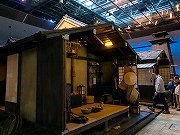
 Tomioka Hachimangu Shrine [富岡八幡宮]
Tomioka Hachimangu Shrine [富岡八幡宮]
Koto-ku, Tokyo Pref.MAP
Tomioka Hachimangu is a Shinto shrine known for the Fukagawa Hachiman Matsuri, which is the Grand Festival of the shrine. Two large and gorgeous mikoshi are exhibited, also.
[details...]5-min walk from Monzen-nakacho Station of the Tokyo Metro Tozai Line or the Toei Oedo Line
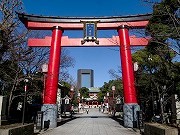
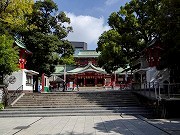
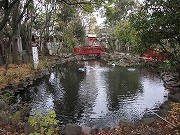
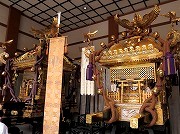
 Daiba Park [品川第三台場]
Daiba Park [品川第三台場]
Minato-ku, Tokyo Pref.MAP
Immediately after the first arrival and departure of the US Navy near Edo in 1853, the Tokugawa Shogunate decided to construct 11 fortifications in the sea to counter their next arrival. When the Navy came back eight months later, three of them were nearly completed. Now two of them are preserved and one (Daiba No.3) is open to the public as Daiba Park after it was connected to the artificial island Odaiba, which was named after these old fortresses, constructed after WWII. The other one (Daiba No.6) remains isolated in the sea. You can also look down at these two from the sidewalk along the Rainbow Bridge.
remains isolated in the sea. You can also look down at these two from the sidewalk along the Rainbow Bridge.
[details...] remains isolated in the sea. You can also look down at these two from the sidewalk along the Rainbow Bridge.
remains isolated in the sea. You can also look down at these two from the sidewalk along the Rainbow Bridge.13-min walk from Yurikamome Line Odaiba-kaihin-koen Station
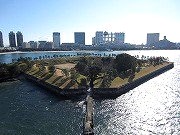
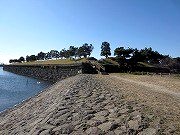
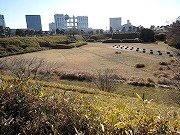
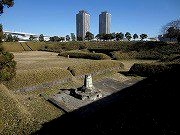
Others
 Fukagawa Fudo-do Temple 深川不動堂
Fukagawa Fudo-do Temple 深川不動堂
Koto-ku, Tokyo Pref.MAP
Fukagawa Fudo-do is a Shingon Buddhist temple adjacent to Tomioka Hachimangu Shrine.
[details...]3-min walk from Monzen-nakacho Station of the subway lines
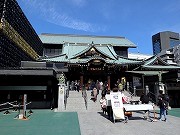
Map
Click a pin on the map or a button below the map to pop open a name balloon. Another click and it will close.



